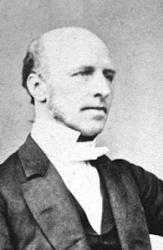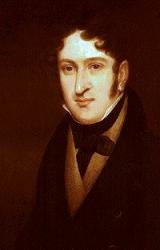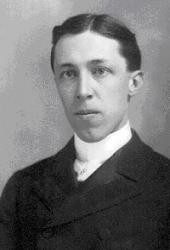
1690 - 1774 Person Name: Karl Heinrich von Bogatzky, 1690 - 1774 Topics: The Holy Scriptures Author of "Awake, thou Spirit of the watchmen" in Service Book and Hymnal of the Lutheran Church in America Bogatzky, Carl Heinrich von. He was born Sept. 7,1690, on his father's estate of Jankowe, near Militsch, in Silesia. His father, J. A. v. Bogatzky, was descended from a noble Hungarian family, and entering the Austrian service attained the rank of Lieutenant-Colonel. Bogatzky's early education was picked up at various places as family arrangements permitted. He was for some time page at the Ducal Court of Weissenfels. From Weissenfels his father removed him to 13realau, to prepare for entering the army. During a long illness at Breslau he became convinced that God had other work for him to do. Receiving an offer of assistance from Count Heinrich xxiv., of Reuss-Kostriz, towards the expenses of an University course, he entered Urn University of Jena in 1713; but removed at Easter, 1715, to the University of Halle, still as a student of law. Before Christinas ho received notice that his mother had died in Silesia, and that he must return. During the week that elapsed before setting out, while attending divine service, he received what he regarded as his first true views of Justification by Faith. Disowned by his father for objecting to enter the army, he returned from Silesia to Halle and enrolled himself, at Easter, 1716, as a student of theology. At Halle he began for his own edification his best known work, The Golden Treasury, 1st published at Breslau in 1718. During 1718 his health failed, and his voice became so seriously affected that he was unable to take any parochial charge.
From thenceforth he devoted himself to religious authorship, and speaking in private gatherings. He left Silesia in 1740, and for five years resided at Saalfeld, where he wrote many works, including that on True Conversion, 1741. In 1746 he removed to Halle, where G. A. Francke gave him a free room in the orphanage. The rest of his life was spent mainly in that town. The most important of his publications at this time was his Meditations and Prayers on the New Testament, 7 vols., 1755-61. He died at Halle, June 15, 1774. (Koch, iv. 468-478; Allg. Deutsche Biog., iii. 37- 39; Autobiography tr. by Samuel Jackson, Lond., 1856—the second dating his death, possibly through a misprint, as at Glaucha, near Halle, 1754).Bogatzky seems to have begun hymn-writing about 1718, and in all composed 411 hymns, some of which appeared in part, in his devotional works, 3 in the Cothnische Lieder, 1733-36, 6 in the Wernigerode Gesang-Buch, 1735, and in a collected form at Halle, 1750, as Die Uebungder Gottseligkeit in allerley Geistlichen Liedern, with 302 hymns (2nd ed. Halle, 1755, with 396; 3rd ed.. 1771, with 411, reprinted unaltered at Berlin, 1844). With this the Dowager Queen of Denmark was so much pleased that, as the 1st ed. was in very small type, she offered to contribute to an ed. in larger type, and when that was issued in 1750 (with 376 hymns), bought 300 copies, all of which she distributed.His hymns have little poetic fire or glow of imagination; but in his better productions there is stimulating zeal, warmth of religious feeling, and simplicity of religious faith, linking him rather with the earlier Halle School, than with the spiritual sensuousness of some of his fellow contributors to the Cothnische Lieder.
(1) The hymns by him in English common use are:
i. Wach auf du Geist der crsten Zeugen. [Missions.] 1st pub. 1750, as above, No. 133, of 14 stanzas of 6 lines, entitled, "For faithful labourers in the Harvest of the Lord, for the blessed spread of the Word to all the world." Included in the Berlin G. L. S., ed. 1863, No. 1383.
Translated as:—
Awake, Thou Spirit, Who of old. A good translation of st. i.-iii., v.-viii. by Miss Winkworth, in her Lyra Germanica, 1st series, 1855, p. 41, and thence, omitting st. ii., altered in metre, and beginning, "Awake, Thou Spirit, Who didst fire," as No. 290 in the Pennsylvania Lutheran Church Book, 1868. In Miss Winkworth's Chorale Book for England, 1863, No. 87, it is altered in metre to "Wake, Spirit, Who in times now olden," st: vii. being omitted, and this form is No. 190 in the Ohio Lutheran Hymnal, 1880. Another translation is "O spirit of the early martyrs, wake," in the British Herald, Oct. 1865, p. 151.
Not in common use:
ii. Ich bin erlost durch xneines Mittler's Blut. [Passiontide.] 1750, as above, No. 330, in 10 stanzas of 9 lines, entitled, "The believer's consolation in death." J. C. Wagner in his Neues Hildburghausisches Gesang-Buch, 1807 (1808, No. 231), included a greatly altered form beginning, "Ich bin erlost! Es floss des Mittler's Blut." The text translation is that in Knapp's Ev. L. S., 1837, No. 503, based on st. i., iii., v.-vii. of the original.
The only translation in common use is:—
I am redeem'd! the purchase of that blood, from Knapp, by Dr. H. Mills in his Horae Germanica, 1845 (1856, p. 64); repeated, omitting stanza ii., as No. 125 in Stryker's Christian Chorals, 1885.(2)
Hymns not in English common use:—
iii. Du Hiiter Israel. [Morning.] 1750, as above, No. 7, in 15 stanzas translated as "Guardian of Israel, Thou," by H. J. Buckoll, 1842, p. 53.
iv. Einer bliebt Konig, wenn allea erlieget. [Christ as King.] 1st in the large type ed., 1750, No. 367, in 10 stanzas translated as "One reigneth still, though all else may be failing," by Miss Burlingham, in the British Herald, Dec. 1865, p. 185, and repeated, as No. 394, in Reid's Praise Book, 1872.
v. Heut ist dein Tag vorhanden. [Sunday Morning.] 1750, as above, No. 106, in 5 stanzas translated as "This is Thy day so glorious," by H. J. Buckoll, 1842, p. 8.
vi. Hirt und Euter deiner Schaafe. [Spiritual Watchfulness] 1750, as above, No. 279, in 16 stanzas translated as "Great Shepherd of the sheep, No longer," in S. Jackson's translation of Bogatzky's Life, 1856, p. 187.
vii. Jehovah, hoher Gott von Hacht und Starke. [The Almighty God.] At Schreibersdorf in the Riesengebirge in 1720, standing on an eminence, he viewed the distant mountains which at first he thought were clouds, and deeply impressed by the majesty, glory, and omnipotence of God, he wrote this hymn after returning to the house (Life, 1856, p. 51). Included, as No. 558, in the Sammluvg Geist- und lieblicher Lieder, Leipzig and Gorlitz, 1725, and repeated, 1750, as above, No. 263, in 12 stanzas as "Jehovah, God of boundless strength and might," by Miss Winkworth, 1869, p. 274.
viii. 0 stilles Lamm, du hast fur mich gelitten. [Cross and Consolation.] 1750, as above, No. 305, in 7 stanzas translated as "O silent Lamb! for me Thou hast endured," by Mrs. Findlater, in Hymns from the Land of Luther, 1858 (p. 64, 1884, p. 122).
-John Julian, Dictionary of Hymnology (1907)
Carl Heinrich von Bogatzky




